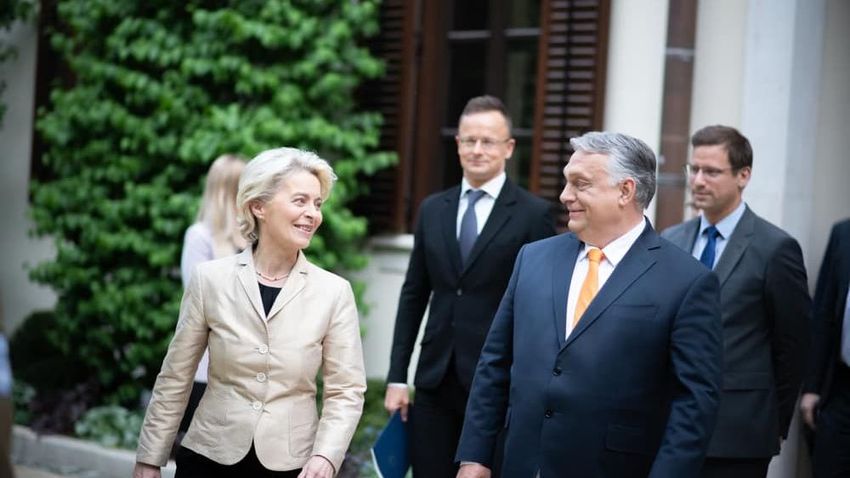The EU is “dropping several taboos that seemed sacrosanct until recently,” reports the Neue Zürcher Zeitung, after an EU summit ended last Friday. The new approach is surprising given the constant demonizing of Hungary for continuously pushing for measures now being considered — not to mention being fined hundreds of millions of euros for implementing such measures on its own external border.
Aside from now considering outsourcing asylum procedures to safe third countries, the temporary suspension of the right to asylum could soon become common practice. Before the summit, von der Leyen sent out a 10-point plan covering migration agreements with third countries, speeding up returns, and outsourcing asylum centers.
With the Netherlands and Hungary wanting to withdraw from the common migration policy, and Finland and Poland wanting to close the borders with Russia and Belarus completely, Brussels has seemingly been forced to change tack.
Italy already opened a migrant center on the Albanian coast just last week to process asylum requests, and aside from Polish PM Tusk announcing his intention to suspend the right to asylum as needed, Finland already has such a law. Both Poland and Finland cite abuse of asylum rights by neighboring countries, namely Belarus and Russia, who use migrants to perpetrate hybrid warfare.
Member states have now committed to finding new ways to combat irregular migration, “within the framework of the law,” says the paper. Commission President Ursula von der Leyen stressed that “extraordinary situations require extraordinary means,” focusing on the need for “innovative solutions” to curb immigration and enact stricter regulations.
Before the summit even began, von der Leyen met for breakfast with 11 heads of government critical of migration, including from Italy, Poland, the Netherlands and Denmark. There, a “coalition of the willing” agreed to meet and campaigned for an acceleration and tightening of the asylum regime. Notably absent from this meeting were Germany and France.
One question most likely on many minds is if there will be any change in course regarding Hungary, a country that faces a €200 million fine, plus some $1 million a day for failing to comply with Brussels’ migration law.
NZZ states that “groups of countries that jointly and effectively represent their interests are now forming more frequently,” with Scholz and Macron “on the ropes domestically” and “strangely muted” at this latest summit.






